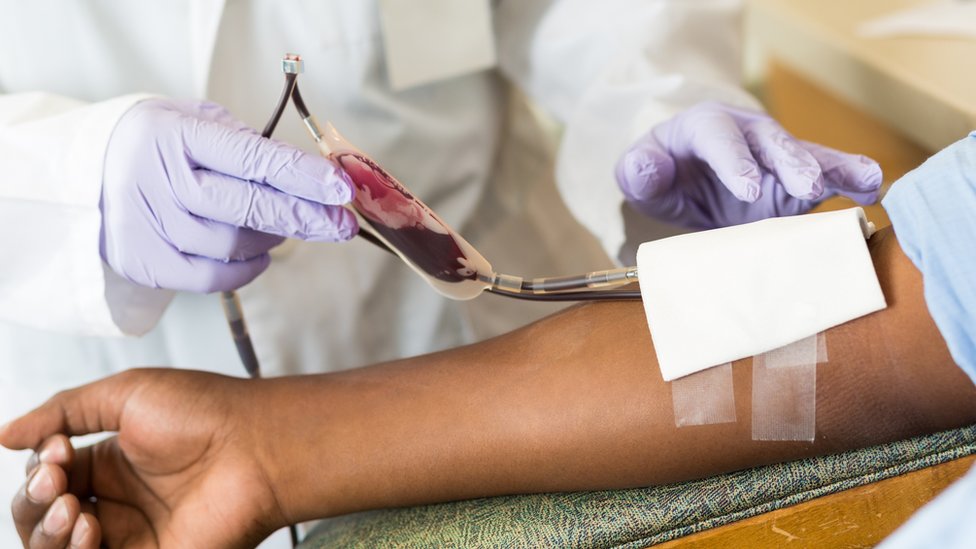
Principal Investigator: Moshi Moshi Shabani
Project leader/ Coordinator: Aina-ekisha Kahatano
Project Administrator: Rashid Sleyum
Funding Partner: Gilead Sciences, Inc
Start date: March 1, 2024
End date: March 1, 2026

Enhancing Care for Blood Donors with Infections in Tanzania - "3HS Model"
The Model to improve notification, Post Donation Counselling (PDC), and linkage to improved care and treatment for blood donors infected with HBV, HCV, HIV, and Syphilis in Tanzania project simply known as 3HS Model is a two-year project implemented by Ifakara Health Institute aimed at enhancing care for blood donors with infections in Tanzania.
Background
Over 350 million people worldwide are affected by viral hepatitis each year, mainly hepatitis B and C. In Tanzania, more than 2 million people are affected by these viruses. Blood transfusions can transmit these and other infections like HIV and syphilis, making it crucial to identify and help infected blood donors.
The National Blood Transfusion Services (NBTS) provides important data on HBV and HCV, key among Transfusion-Transmitted Infections (TTIs) and other infections like HIV and syphilis.
The problem
In 2022, NBTS found that 10% of donated blood units had transfusion-transmitted infections (TTIs). Unfortunately, very few donors are informed about their infections and do not receive proper Post-Donation Notification and Counselling (PDC) after donation, with rates as low as 1.5% to 7.5% in many regions. Additionally, the current system lacks specific disease information, which may explain why donors don’t see the need to return for PDC.
It is important to develop innovative approaches to enhance knowledge on TTIs, post-donation notification and PDC are indispensable. This will raise awareness of donors' health status and facilitate prompt linkage to healthcare and prevent advanced illness. Addressing these gaps will significantly contribute to achieving the objectives of the Tanzanian National strategic plan for the control of viral hepatitis and related infections.
Objectives
The primary goal of the 3HS Model project is to develop a new electronic health notification system to inform blood donors and provide additional information about these infections. Specifically, the project aims to:
- Create an e-health surveillance system to notify blood donors and facilitate their linkage to counseling services
- Evaluate the impact of adding a pre-donation diseases information form (along with current NBTS-ICF) on the uptake of PDC and linkage to healthcare for blood donors with TTIs.
- Evaluate and enhance the capacity of healthcare facilities and healthcare workers to manage viral hepatitis effectively.
Implementation
Ifakara Health Institute will implement the project from 2024 to 2026 in the regions of Songwe, Njombe, and Mbeya in Tanzania. The study will collect and compare data before and after the implementation of the new system, ensuring secure storage and advanced analysis using modern software.
The project is expected to improve the notification and counseling process for blood donors, increase follow-up and treatment rates for infected donors, enable digital tracking of donations and infections, and provide improved training and recommendations for healthcare workers, leading to enhanced patient care.
Achieving global health goals by 2030 requires connecting people with the care they need. This project's success can pave the way for expanding this model to other areas, exploring its cost-effectiveness in rural settings, and using it for further research, such as hepatitis vaccination programs for those at risk.
Funding and leadership
The 3HS Model project is funded by Gilead Sciences, Inc., a biopharmaceutical company in the USA. The project will be led by Dr. Moshi Moshi Shabani, Principal Investigator, and Aina-ekisha Kahatano, Project Leader, both from the Ifakara Health Institute.
